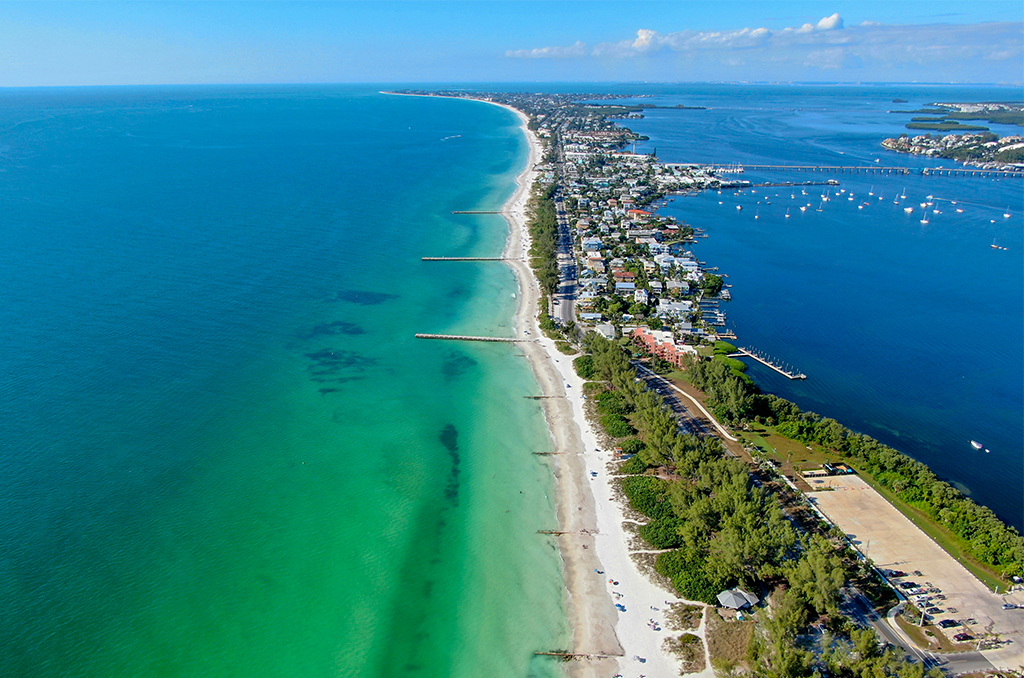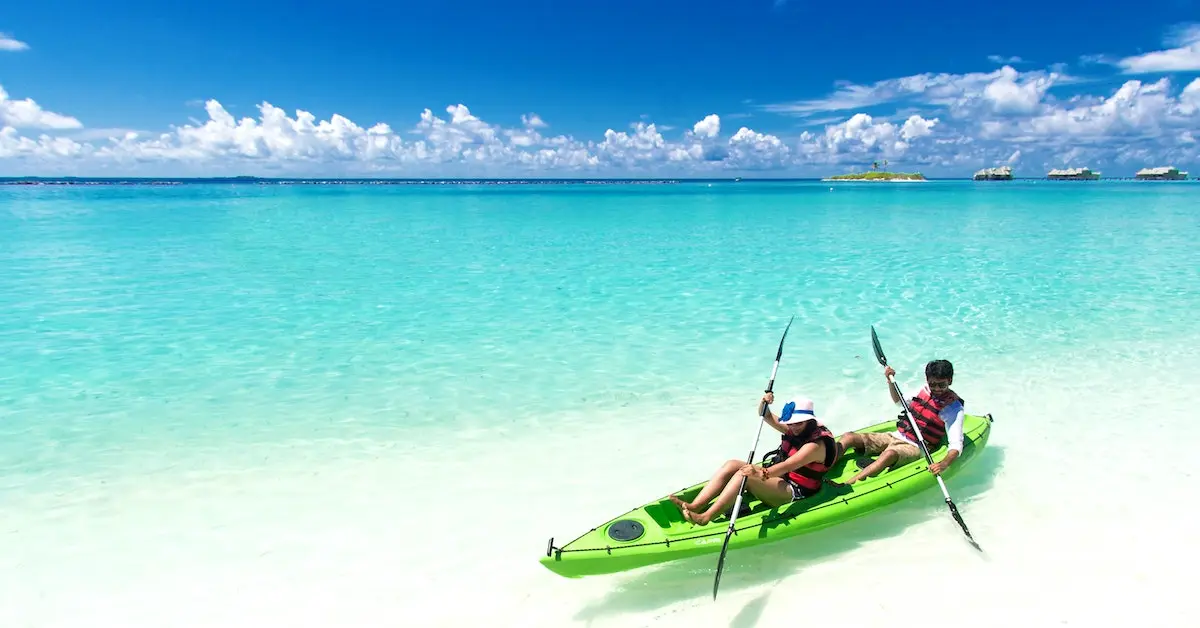Florida, known as the “Sunshine State,” boasts an array of mesmerizing waterways that are perfect for kayaking. From its serene springs to the vast coastline, there are countless spots to launch your kayak and drift away. But for many, the thought of encountering an alligator might be daunting. If you’re one of those keen to kayak and want to know where to kayak in Florida without alligators, this guide is for you.
Kayaking in Florida Without Alligators the Ultimate Guide
Understanding the Alligator Presence in Florida
Before diving into the list, it’s important to understand where alligators typically reside:
- Freshwater lakes and slow-moving rivers: These are the most common habitats for alligators.
- Marshes and wetlands: Especially in the Everglades.
- Man-made retention ponds: Common in many Florida neighborhoods.
It’s worth noting that while alligators are widespread in Florida, attacks on humans are rare. Being aware of your surroundings and following safety guidelines can further reduce the risk.
Top Places to Kayak Without Alligators

1. Florida’s Coastal Areas
Florida’s coastline, spanning the Atlantic Ocean and the Gulf of Mexico, generally lacks alligators due to the saltwater environment.
- Key Largo: The northernmost of the Florida Keys, it offers clear waters and diverse marine life.
- Tampa Bay: This extensive shoreline is mostly free from alligators, and kayakers can enjoy beautiful mangrove tunnels and see dolphins or manatees.
2. Springs with Crystal Clear Waters
Alligators prefer murkier waters, making the clear springs a safer bet.
- Ichetucknee Springs State Park: Famous for its crystal-clear river, perfect for a relaxing kayak trip.
- Weeki Wachee Springs: Not only is the water clear, but you might also spot a manatee.
3. Urban Waterways
Some urban locations have made efforts to create alligator-free zones for recreational activities.
- Fort Lauderdale Canals: Known as the “Venice of America,” its canals, primarily in urban settings, are less likely to host alligators.
Safety First: Tips for Kayaking in Florida
Even in areas that are less frequented by alligators, safety should always be a priority.
- Avoid Dusk and Dawn: Alligators are most active during these times.
- Stay Away from Vegetated Areas: Alligators might hide here.
- Keep a Safe Distance: If you spot an alligator, do not approach or provoke it.
- Avoid Swimming: Especially in freshwater lakes and rivers with a known alligator presence.
Alternative Activities to Kayaking
If you’re still wary about kayaking, Florida offers an array of water activities that are safe and enjoyable:
- Stand-Up Paddleboarding: Many of the places suitable for kayaking are also great for paddleboarding.
- Snorkeling: Especially in the clear springs, where visibility is excellent.
- Boat Tours: A way to explore Florida’s waters with a guide and in the safety of a larger boat.
Digging Deeper into the Safe Spots
Florida State Parks Without Freshwater Systems
Many state parks in Florida offer saltwater kayaking options, making them less hospitable to alligators.
- Anastasia State Park: Located near St. Augustine, this park features tidal salt marshes and a broad beach. The Salt Run estuary is an excellent spot for kayaking and is typically free of alligators due to its brackish nature.
- Bahia Honda State Park: Located in the Lower Keys, this park is renowned for its iconic Florida beaches and offers great ocean kayaking opportunities.
The Intracoastal Waterway
Stretching for hundreds of miles along Florida’s coast, the Intracoastal Waterway is a network of rivers, inlets, canals, and bays. It’s generally brackish to salty, making it less appealing to alligators.
- Palm Coast Matanzas: This area offers miles of salt marshes and tidal channels, presenting unique opportunities for bird watching and fishing.
Understanding Alligator Behavior
The more you know about alligators, the better prepared you’ll be:
- Temperature Preferences: Alligators are ectothermic, meaning their body temperature is regulated by external sources. They prefer warmer waters and can be more active during hotter months.
- Feeding Patterns: While they mostly eat fish, they can feed on larger prey. Their hunting peak is usually at dusk or dawn.
- Breeding Season: Alligator mating season is in May and June. During this period, they can be more territorial and aggressive.
Equipment & Precautions for Safe Kayaking
To ensure a safe kayaking experience, investing in the right equipment and precautions can make a difference.
- Bright Colored Kayak: Opt for a brightly colored kayak, as it’s easily visible, deterring any curious creatures.
- Whistle or Horn: This can be used to scare away potential threats or alert others in case of an emergency.
- Guided Tours: Especially for beginners, joining a guided tour ensures you are in safe zones and learn about the waterways.
The Importance of Respecting Wildlife
While this guide is focused on kayaking away from alligators, it’s crucial to respect all forms of wildlife.
- Birds: Florida’s waterways are home to a vast array of bird species. Maintain a respectable distance and avoid nesting areas.
- Manatees: These gentle giants are a joy to see but maintain a distance, and remember, it’s illegal to harass them.
- Fish: Especially in clear springs, you’ll witness an array of fish species. Refrain from feeding or disturbing them.
Expanding Your Kayaking Horizon
Beyond Florida, the US boasts many excellent kayaking spots. From the serene lakes of Minnesota to the vast coastlines of California, there are endless opportunities to paddle without the concern of alligators.
FAQs
Q: Can alligators be in saltwater areas?
While alligators prefer freshwater, they can tolerate saltwater for short periods. It’s rarer to find them in coastal areas, but always remain vigilant.
Q: What should I do if I see an alligator while kayaking?
Keep calm, maintain a safe distance, and avoid making sudden movements. Usually, the alligator will keep to itself.
Q: Are there areas in Florida completely free of alligators?
It’s challenging to guarantee any area in Florida is 100% free of alligators. However, some areas, like clear springs and saltwater coastlines, are less frequented by them.
Conclusion
Florida’s waterways are a paradise for kayaking enthusiasts. While alligators are a part of the natural landscape, choosing the right location and following safety guidelines can ensure a memorable and safe experience. Whether you’re exploring the vast coastline or the clear springs, Florida offers unparalleled beauty for those eager to venture out onto its waters. Just remember: respect nature, prioritize safety, and savor every moment on the water.
Read More about Kayaks:
- What to Wear for Kayaking in Summer
- How to Store a Kayak in the Garage
- What is a Skeg on a Kayak
- What is a Tandem Kayak
- How to Build a Homemade Kayak Launch
- How to Get in a Kayak
- What to Wear for Kayaking?
- How to Transport a Kayak Without a Roof Rack?
- How to Build a Kayak Rack for an RV?
- Are Inflatable Kayaks Safe?
- How to Build a Rack for Kayaks?
- Do Kayaks Have a Weight Limit?
- Wilderness Systems Pungo 120 Kayak Review
- Is it hard to kayak?
- How to Lock a Kayak?
- Where to Kayak with Manatees?
- Are Inflatable Kayaks Good for Fishing?

Hi, I’m Steve, the passionate kayaking enthusiast behind Outdoor Bravo. As an avid adventurer and nature lover, kayaking has been a central part of my life for as long as I can remember. My love affair with the water began during my childhood, and it has only grown stronger over the years. From serene lakes to rushing rivers and even challenging ocean tides, I’ve navigated various water bodies, seeking new thrills and unforgettable experiences.
